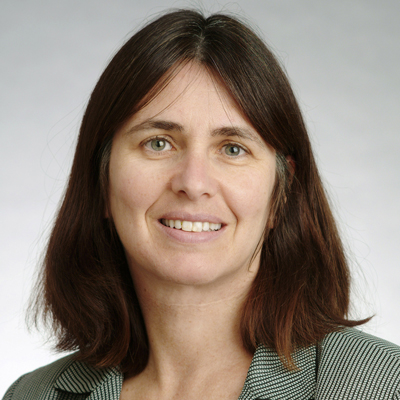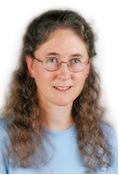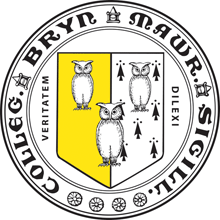 The Hot under the Cool - Patterns, Programming and Performance
The Hot under the Cool - Patterns, Programming and PerformanceA Colloquium by
Judith BishopDirector of Computer Science in External Research, Microsoft Research
Thursday, February 25, 4:00-5:00pm (Tea at 3:30pm) in Room 243 Park Science Building, Bryn Mawr CollegeAbstract:So much of what computer science produces is labeled as cool, that it is easy for the public to miss the real hard science that goes into getting the graphics, the communications or the devices out there into the consumer space. Yet it is the hot topics under the cool that attract the best students and the biggest grants and should be as visible to the public and to policy makers. This talk looks at research underneath user interfaces and in the quest for performance in the past decade as seen through my years as in academia, but more recently in Microsoft. Patterns and abstraction are not evident to the naked eye, but they drive reusable, safe and cost-effective software. I will examine the progress that has been made, the current research that is ongoing, and the steps that will need to be taken - technical and social - to meet the massive estimated needs of computer specialists in the future.
Bio:Judith Bishop is Director of Computer Science in External Research at Microsoft Research, based in Redmond, USA. Her goal is to foster strong links between Microsoft's research groups and top computer science departments globally, through encouraging projects, supporting courseware and conferences, and engaging directly in research. Professor Bishop has a distinguished background in academia, having been a professor most recently at the University of Pretoria, South Africa. She has had visiting positions in the UK, Germany, Canada, Italy and the USA. Her expertise is in programming languages and distributed systems, with a strong practical bias and an interest in compilers and design patterns. She has over 90 publications including 15 books on programming languages that are available in six languages and read worldwide. Professor Bishop serves frequently on international editorial, program and award committees, and has received numerous awards and distinctions, in particular the IFIP Outstanding Service Award in 2009 for service to the worldwide computer science community.
 Drexel University will be hosting a symposium in honor of Shafi Goldwasser who is this year's recipient of the Franklin Institute Award in Computer and Cognitive Science (www.fi.edu/franklinawards). The theme of the symposium will be theoretical CS with applications to cryptography (Shafi is the co-inventor of zero knowledge proofs and the complexity class IP along with many other significant results in crypto and complexity theory). The symposium will be held on Thur. April 29 from 10-2 and will feature, in addition to Shafi talks by Silvio Micali and Avi Wigderson, two of her collaborators and major contributors to the field themselves.
Drexel University will be hosting a symposium in honor of Shafi Goldwasser who is this year's recipient of the Franklin Institute Award in Computer and Cognitive Science (www.fi.edu/franklinawards). The theme of the symposium will be theoretical CS with applications to cryptography (Shafi is the co-inventor of zero knowledge proofs and the complexity class IP along with many other significant results in crypto and complexity theory). The symposium will be held on Thur. April 29 from 10-2 and will feature, in addition to Shafi talks by Silvio Micali and Avi Wigderson, two of her collaborators and major contributors to the field themselves.





